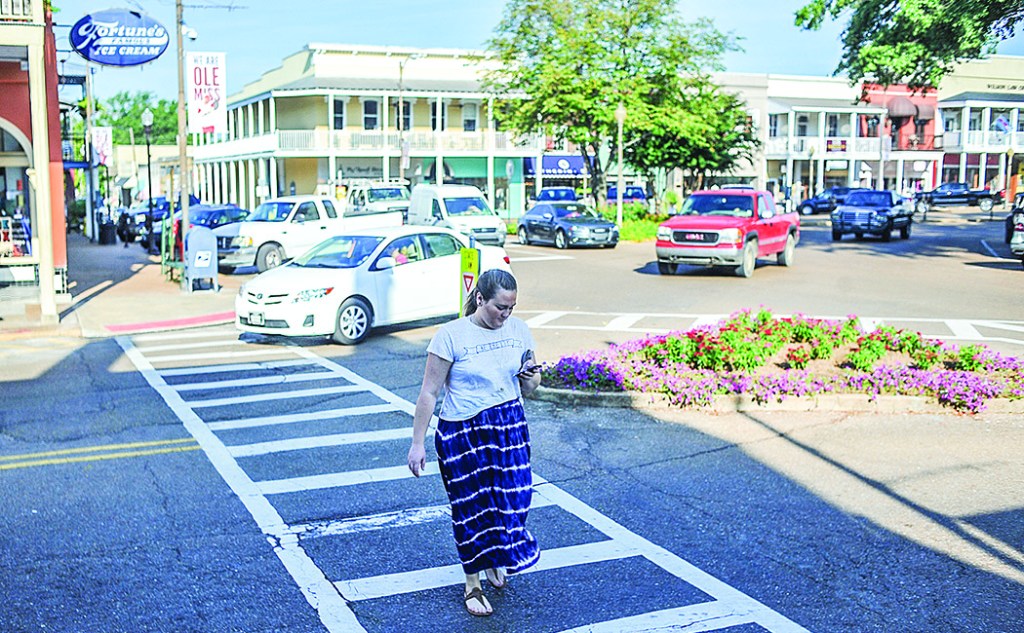Is Oxford destined to become the next Athens?
Published 11:28 am Friday, September 23, 2016

- The Oxford Square, in Oxford, Miss. on Thursday, September 22, 2016.
Oxford and Athens — two towns named for the purpose of establishing flagship universities in their respective states — have similarities reaching far beyond their roots.
Only 353 miles separate Oxford and Athens, with the booming growth of the former raising the question: Will Oxford one day resemble the latter?
With a steadily increasing overall population and a newly unveiled city plan for the next two decades, there’s no doubt Oxford is changing.
Trending
As of 2013, Oxford’s population was 20,865 and steadily climbing, a far cry from Athens’ population of 119,980, but certainly following a similar growth trajectory. Oxford is on the rise in terms of people choosing to become Oxonians, not to mention the nearly 24,000 students on the Ole Miss campus, an institution that ranks second in the country for fastest-growing flagship universities.
Cultural meccas
Both Oxford and Athens are continually hailed as cultural bastions of the South, constantly changing the region and putting it on the map.
John T. Edge, the president of the Oxford-based Southern Foodways Alliance and an educator at The University of Georgia, believes that both of these towns are important for progress.
“I think they both prove these prototypical college towns are places of creativity and dissent,” Edge said. “They both have a creative impulse to redefine the South. It’s an unwillingness to accept the old definition of the [region].”
Oxford’s literary heritage precedes itself with names like William Faulkner, John Grisham and Willie Morris making waves both nationally and internationally.
Trending
Athens, on the other hand, has a long-established reputation as an incubator for new music scenes, particularly during the ‘70s and ‘80s with the rise of bands like R.E.M. and the B-52s.
Rooted in universities
Cultural comparisons aside, the cities bear a striking resemblance to each other in their construction. Both revolve around a university and the neighborhoods and businesses surrounding them reflect this central location.
Edge said that in his time spent in Athens he noticed, “as you move out toward the normal town, the pattern of nightlife shifts from people in their 20s to people in their 30s and 40s.”
A stark comparison to Oxford where most nightlife (both student or otherwise) is centered around The Square.
While The Square adds to Oxford’s charm, it can also provide some challenges in planning for a growing future.
Judy Daniel, an Oxford city planner, says that college and tourist-heavy towns like Oxford and Athens have their own unique issues with traffic and crowded weekends.
“The people come here to visit because they want the uniqueness of Oxford, not the standard options that are in any suburb anywhere,” Daniel said. “We want to create different spots for different kinds of groups.”
While Daniel sees major retailers as a necessity for a growing town, she also has her own suggestions for how Oxford should proceed.
“What we need is more unique, smaller, slightly denser places that are more walkable with a mix of shopping and residences together,” Daniel said. “We need places connected going off from the Square that offers more interesting opportunities, not just another suburban zone which we already have. We would go a little more up in some places and less out.”
Oxford Alderman Robyn Tannehill agrees with this proposition.
“We are so densely populated and I would prefer to see us go up, rather than sprawl further out,” Tannehill said. “What we are doing, as far as our future planning goes, is trying to establish different centers around town so everyone doesn’t have to drive down University Avenue or West Jackson to get toilet paper and paper towels.”
We’re trying to encourage retail development where people live. And part of that is building up; it’s retail on the ground floor and residential above.”
The tallest structure in Athens, the Bank of America Building, stands at 11 stories, and though Oxford has nothing close to that height (excluding campus structures), the possibility no longer seems out of the question.
Oxford’s future
Edge says that if Oxford grows, it shouldn’t sacrifice the culture that put it on the map.
“The question will be how do we manage it and how do we leverage that new investment in a way that retains or strengthens the cultural and creative forces in the city,” Edge said. “Oxford can learn from Athens in how they’ve managed their own growth and identity.”
Ultimately, Oxford still has a long way to evolve before it becomes a mirror image of Athens.
“In a way, I think a lot of Athens folks have an affection for Oxford,” Edge said. “They see in the town an Athens of a generation ago. They come to Oxford looking for an Athens past.”





